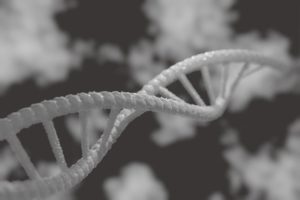810 words (source) vs. 506 words (mine) – 2% match
Chemotherapy, radiation, and surgery may all be utilized to help patients to manage nasopharyngeal carcinoma (NPC), a rare and aggressive cancer that forms in the nasopharynx. Hint: this area sits behind your nose and at the top of your throat. While these current treatment options exist, they can come with some serious side effects. Immune checkpoint inhibitors have also been used as a second-line treatment, but response rates are relatively low. Cell and gene therapy biotechnology company Biosyngen Pte. Ltd (“Biosyngen”) is working to develop a novel therapeutic option called BRG01 to overcome some of these treatment issues and provide patients with a more effective and better tolerated care plan.
BRG01 is an engineered T-cell therapy. First, T cells are sourced from the patient and removed from the body. Once removed, these cells are genetically modified. This allows them to recognize certain antigens (molecules or foreign particulates) that are expressed on the surface of cancer cells. Later, these cells are given back to the patient via infusion. Biosyngen hopes that this will allow a more targeted cancer treatment. Preclinical studies of BRG01 have suggested that BRG01 is both safe and effective (though more research must be done).
According to reporting by PR Newswire, the FDA recently granted Orphan Drug designation to BRG01 for nasopharyngeal carcinoma. This designation is granted to investigational or experimental drugs or biologics within the rare disease sphere. Rare conditions affect fewer than 200,000 people across the nation. Because of this, it can be difficult to stimulate drug development. Orphan Drug designation helps to incentivize rare disease drug development by offering benefits such as fee waivers and tax credits, 7 years of market exclusivity upon drug approval, and increased communication with and assistance from the FDA.
Biosyngen soon hopes to begin human studies of BRG01 and bring a novel therapeutic option to people in need.
About Nasopharyngeal Carcinoma
Nasopharyngeal carcinoma may also be called nasopharyngeal cancer or nasopharynx cancer. Nasopharyngeal carcinoma begins in squamous cells that line the nasopharynx. While this cancer may occur in both children and adults, it is more common in people between ages 30 to 50. Being male, having a high salt-cured food diet, having a family history of this cancer, or being of Chinese, Southeastern Asian, or Northern African descent may also increase your risk. An estimated 50% of new nasopharyngeal carcinoma cases occur in China, with a large majority occurring in the Guangxi and Guangdong provinces. In many cases, doctors believe that Epstein-Barr virus (EBV) infection causes nasopharyngeal carcinoma. This virus has also been implicated in a number of other conditions.
Symptoms of this cancer may not appear until the cancer has progressed. When symptoms do appear, they may include:
- Blurry or double vision
- Recurrent ear infections
- Swollen lymph nodes in the neck
- Headache
- Unilateral (affecting one side) hearing loss
- Bloody saliva or nasal discharge
- Congestion
- Sore throat
- Headache
- Facial numbness
- Hoarse voice








